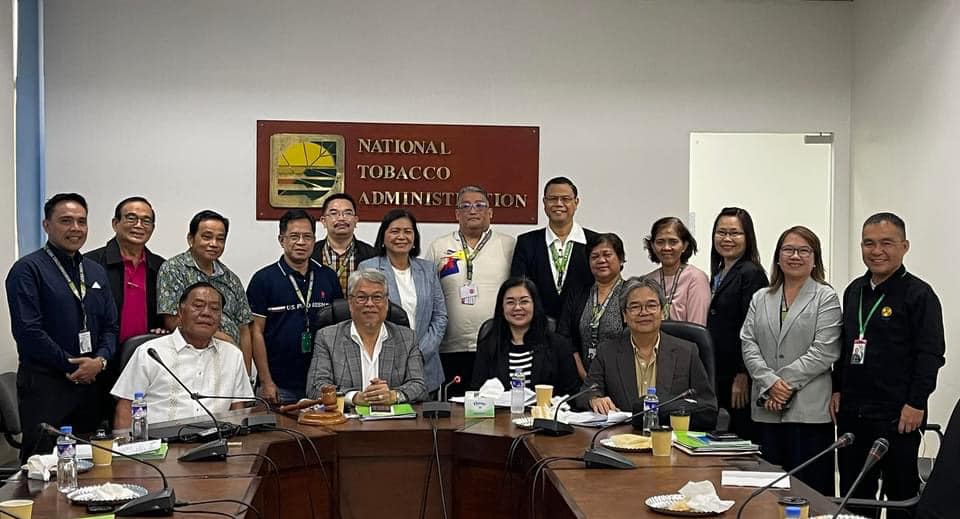Agriculture Undersecretary Deogracias Victor B. Savellano sought the increase of tobacco production for export to sustain the strong contribution of the industry to the local economy, farmers’ livelihood, and job generation.
In a regular meeting of the members of the Governing Board of the National Tobacco Administration (NTA) recently at the NTA Central Office, he said that the tobacco agency should focus on a doable farming system strategy leading to the production of quality tobacco without sacrificing the production of other crops.
Usec. Savellano, who represented President Ferdinand R. Marcos Jr. – the concurrent Agriculture Secretary and Chairperson of the NTA Governing Board, presided over the meeting with the presence of Administrator and CEO, and NTA Board Vice Chairperson Belinda S. Sanchez.
He said that rice would remain the main crop of the farmers in the tobacco-producing areas; either tobacco or corn or high-value crops will follow the rice-cropping season.
Once the country had increased tobacco supply for export, according to Usec. Savellano, the national government could engage in the barter-to-barter (B2B) strategy with Indonesia, a producer of low-cost rice and fertilizer.
For the calendar year 2022, NTA recorded a total of 43.81 million kilograms of tobacco produced by the local farmers of which 53% or 23 million kilograms were exported and 47% or 20.81 million kilograms were supplied to the local tobacco manufacturers.
He disclosed that there are also many strategies to enhance the tobacco contribution to government revenues.
“Aside from our aim to increase our tobacco production for export, we are also looking at the other alternative products from tobacco and its commercialization like the tobacco dust,” said Usec. Savellano, who was a former House Deputy Speaker.
As to the significance of tobacco to the country’s economy, the industry provides livelihood to at least 2.1 million people, including more than 430,000 farmers, farm workers, and their family members.
The tobacco industry contributes per year an amount of P74 billion to the Universal Health Care program. In 2020, the industry brought revenues for the government with P149.7 billion excise tax collections in which the tobacco-producing LGUs got a P19 billion share for use in the implementation of their priority programs and and projects.
For her part, Administrator Sanchez said the NTA has an existing tobacco industry roadmap called the Sustainable Tobacco Enhancement Program (STEP) for the enhancement of the farming systems in the tobacco-producing areas. One of the component strategies of the STEP is block farming.
The STEP roadmap was formulated in 2020 through the joint efforts of the office of former House Deputy Speaker Savellano, the Department of Agriculture and the NTA.



